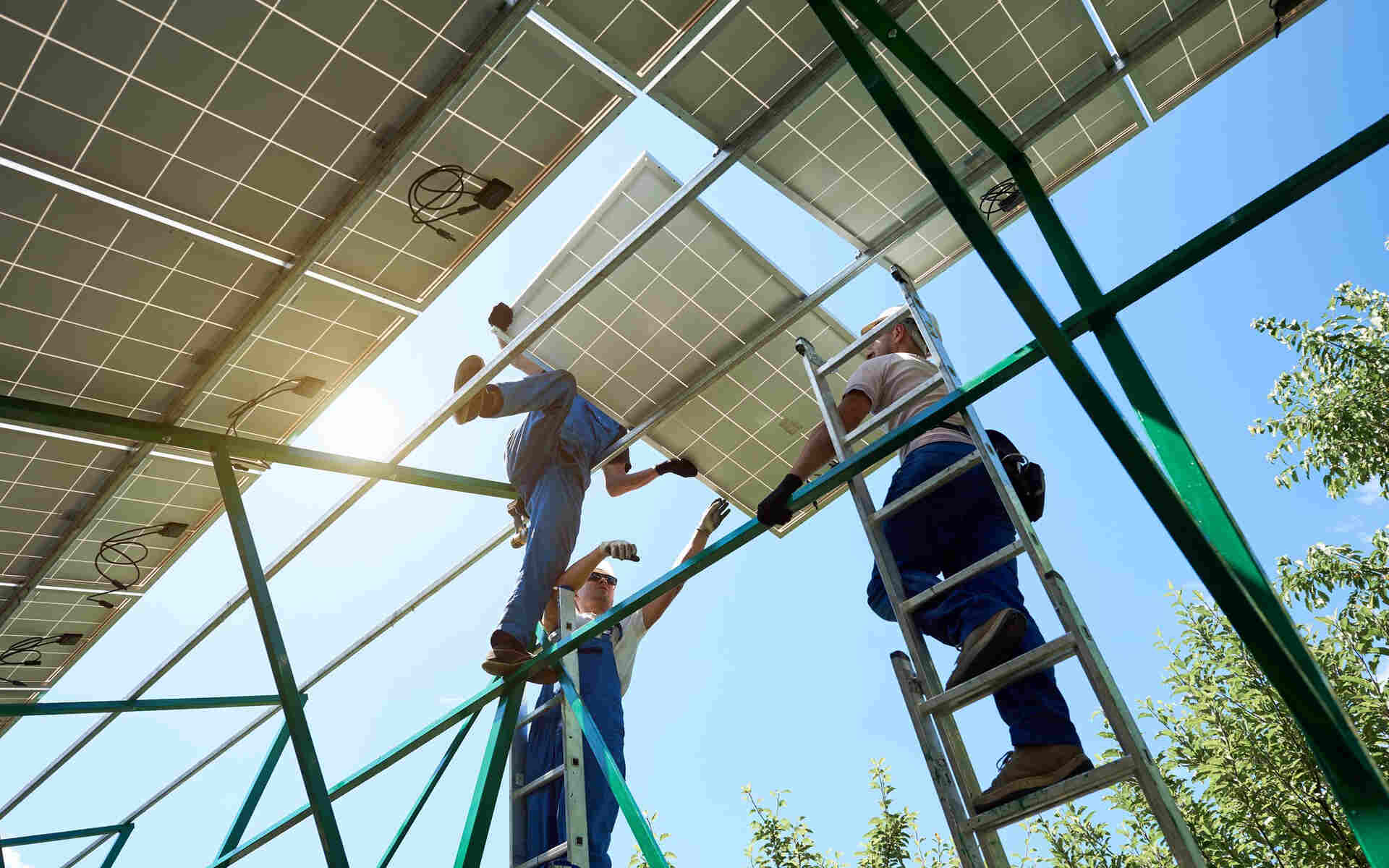Key takeaways:
- Commercial solar panels help Riegelsville businesses save money and gain energy independence.
- Pennsylvania’s solar incentives and federal tax credits lower installation costs.
- Riegelsville’s climate is great for solar all year.
- Professional installation ensures top performance and meets local codes.
Running a business in Riegelsville means dealing with many expenses. Electricity is often one of the biggest. Commercial solar panels can help you cut your energy bills and show your commitment to sustainability. For local business owners, this is about more than saving money. It’s about energy independence, a stronger bottom line, and being seen as an environmentally responsible company.
Why Riegelsville Businesses Are Going Solar
Electricity is a major cost for local businesses. Solar panels can lower those costs and boost your reputation as a green business. Riegelsville gets about 4.2 hours of peak sunlight each day. That means solar works well here, even in winter. The area’s mild climate helps panels work efficiently. All four seasons provide steady energy production.
Pennsylvania’s energy policies also encourage solar. The state’s Alternative Energy Portfolio Standard requires utilities to use more renewable energy. This leads to more incentives and better opportunities for businesses to install solar.
How Commercial Solar Works
Commercial solar systems are larger and more complex than home systems. They need more panels and advanced monitoring. The process starts with an energy audit. This checks how much energy your business uses. Solar experts then design a system just for you.
Most businesses choose rooftop installations. If your roof isn’t suitable, ground-mounted systems are an option. The size of your system depends on your energy use, available space, and budget. Commercial systems usually range from 25 kilowatts to several megawatts.
The Commercial Solar Panel Installation Process
A typical commercial solar project takes several weeks and includes these steps:
- Site Assessment and Design: Experts check your property for shading, roof strength, and electrical setup.
- Permitting and Utility Agreements: Your installer handles permits and works with local authorities and your utility company.
- Equipment Procurement: After permits are approved, your installer orders the necessary materials.
- Installation: The team installs the mounting hardware and solar panels.
- Electrical Connections: Licensed electricians connect the system to your building’s electrical system and set up the inverter.
- Inspection and Activation: Local authorities and your utility company inspect the system before it goes live.
Safety is always a top priority. The system only starts working after it passes all inspections.
Financial Benefits and Incentives
Solar panel prices have dropped a lot in recent years. Several financial incentives make solar even more affordable:
- Federal Investment Tax Credit (ITC): You can deduct 30 percent of installation costs from your federal taxes.
- Solar Renewable Energy Credit (SREC) Program: Pennsylvania lets you earn extra income by selling credits for the clean energy you produce.
- Bonus Depreciation: Businesses can write off the cost of the system faster.
- Net Metering: If you produce more electricity than you use, you can send it back to the grid and get credits on your utility bill.
Most commercial solar systems pay for themselves through energy savings in 6 to 10 years. After that, you get decades of low-cost electricity. Solar panels often come with 25-year warranties and can last 30 years or more. This long lifespan protects your business from rising utility rates and helps with long-term planning.
Other Financial Advantages
- Higher Property Value: Solar panels can make your property more valuable and attractive to buyers or tenants.
- Predictable Energy Costs: Solar lets you lock in your electricity rates, making budgeting easier.
- New Business Opportunities: Many customers and partners prefer working with green businesses.
Choosing the Right Solar Partner
Picking the right installer is key. Look for companies with:
- NABCEP certification and experience in Pennsylvania.
- Knowledge of Riegelsville building codes and utility rules.
- Strong warranties for equipment and labor.
- References from other local businesses.
- Clear pricing and project timelines.
A good installer will guide you through site assessment, system design, installation, maintenance, and explain all incentives and financing options.
Maintenance and Performance
Commercial solar systems need very little maintenance. Regular cleaning and inspections keep them working well. Most businesses clean their systems twice a year. Annual inspections check electrical connections, inverters, and panel condition. Many systems include monitoring software that tracks energy production and alerts you to any issues.
Future-Proofing Your Business
Solar saves you money, but it’s also about preparing for the future. Solar technology keeps improving. Panels are more efficient, and battery storage is more affordable. Batteries let you store extra energy for use during peak times or outages, making your business even more independent.
Going solar also helps you meet sustainability goals and reduce your carbon footprint. Plus, it can help you comply with future environmental standards.
Getting Started with JAXSL
If you want to save on energy, become more independent from the grid, and boost your business’s green reputation, JAXSL can help. We are a commercial solar installer serving Riegelsville. Our team offers expert consultation, custom design, installation, and maintenance to fit your business needs.
We know the local rules, climate, and financing options to help you get the most from your solar investment. We guide you through every step, from site assessment to system activation and beyond.
Contact JAXSL today for a free consultation. Start your journey toward cleaner, more affordable energy for your Riegelsville business.
FAQ
How long does commercial solar panel installation take?
Most projects take 4 to 8 weeks from contract to activation.
What affects installation cost?
System size, roof complexity, electrical upgrades, and equipment quality are the main factors. Incentives help lower costs.
Do solar panels work in Pennsylvania winters?
Yes. Panels work well in cool weather; snow usually slides off or melts quickly.
Is my building right for solar?
A professional assessment checks your roof, structure, shading, and electrical system to confirm if solar is a good fit.
What kind of maintenance do commercial solar panels require?
You should clean your solar panels once a month or so to prevent buildups that would reduce their efficiency. A solar pro should also inspect your panels once or twice a year to catch potential electrical issues.

